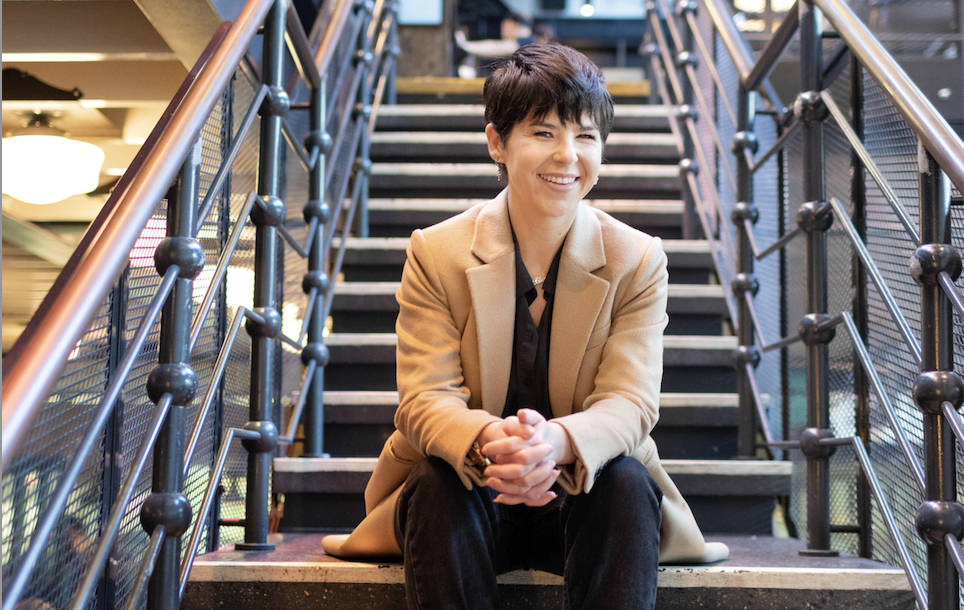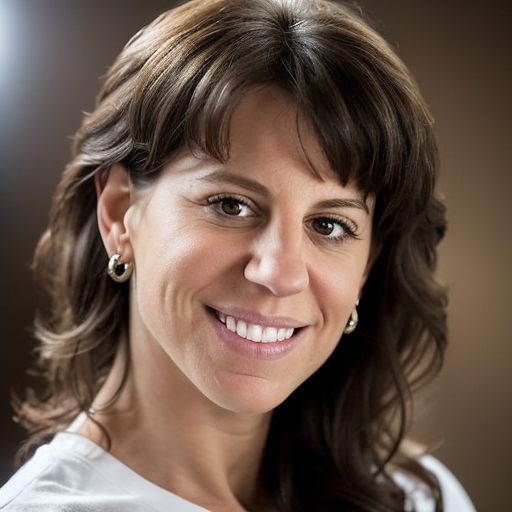As Martina Viduka sat in the waiting room of the emergency department last year with extreme back pain, there was just one thing on her mind: getting the all-clear to fly to a business meeting in Canada for her healthtech startup, Advosense, two days later.
“In my head, there was only ‘how am I going to get there?’,” she says. Rather than getting on the plane, she ended up in an operating room the next day, undergoing spine surgery to treat a herniated disc that had periodically caused her pain since 2019. In the six months before her surgery, it had been exacerbated by spending 16 hours a day sitting at her desk.
But even that wasn’t enough to distract from the startup stress.
“A month and a half later, I was on a plane when I should have been in physio,” she says. It wasn’t stubbornness that spurred her on, but an overwhelming pressure to put her business before anything else. “It felt like if I stopped for a second to look after myself, then everything else would collapse.”
“For a very long time, I felt trapped,” says Viduka. “There was no stopping or taking a break.” She’s now learning to draw healthier boundaries between work and wellbeing — but with 45% of founders recently telling Sifted that their mental health was ‘bad’ or ‘very bad’ right now, she’s far from the only founder who's been pushed to the brink in the past year.
The work-life imbalance
Prioritising the business over personal events is also something that Swakara Atwell-Bennett, CEO and founder of online African art marketplace BetterShared, has struggled with.
“Last year was one of the hardest years for me,” she says. Alongside the stress of dealing with a tough economic climate, she also suffered a death in the family and found herself struggling to balance the spheres of work and life. Then, she was asked to pitch to a client — on the day of the funeral.
“Eventually I couldn't make the meeting, but even the fact that I considered trying to see if I could fit it in the morning before going to a funeral… when I think back to that point, I wasn't in the right space to be able to do that,” she says.

“There's this guilt that you feel as a founder, where you're like, ‘it's my fault that we didn't get this, I should have been there, and I should be doing better’,” she says. Right after her loss, she jumped back into the business — and the effects of the pressure she was under became clear.
“The more that I was pushing myself into work, the more that everything else in me as an individual, as a human, was deteriorating — from my health, to the fact that I wasn't actually processing the grief,” she says.
The stress of it all led to burning out. “I had a moment during that year, especially during the summer, where I was completely depleted. There was nothing left.”
Hamsters in a wheel
While burnout is concerningly common in the startup community, Nele Wessels, founder of supplements startup naeo, reckons that for founders, it isn’t simply working too much that causes it. It’s the never-ending need to do more.
Wessels’ startup began with selling vitamin supplement gummies, but found itself at the mercy of transit delays last year when global crises drove transport to a halt. Between those issues and a saturated market, the team had to pivot quickly to a completely new product.
“Once you have successes, even if you work 80 hours a week, you get an adrenaline and dopamine-like feeling where you want to achieve more and you don't even feel like you've worked so much,” she says.

But it can sometimes seem like you’re also achieving nothing, says Wessels: “You feel like a hamster in a wheel: you run and run and there’s no success.”
Stephanie Melodia, who was founder of startup marketing agency Bloom, says the root of her burnout was similar. “Throughout my entire career, I've worked so hard, and I've got something out of it. I know that what I put in, I get back out,” she says. But in the 18 months before she closed her business last year, she found that her efforts felt fruitless. “It's like we were working doubly hard to get half the results,” she says.
The frustration with the slow progress also affected Wessel’s self-confidence. “I think the challenge is really that you start to question your own worth, and sometimes your worth is tied too much to the company. If the company is not performing, I'm also not performing as an individual because you sort of meld into one,” she says.
A key moment in Viduka’s journey to accepting the need for recovery was separating herself from the startup. “That was something that I'm actually just embarking on understanding over the last month and a half. I am not my company even though I am the founder, and that takes away some of the pressure.”
Recovery and boundaries
After her health scare revealed how unhealthy her connection to work had become, Viduka decided to force herself to take a break. Last summer, she went on holiday to Peru with her partner, and made it a rule to disconnect. “It was the first time in four years that we didn’t have laptops,” she says. “I realised it was possible, and nothing was on fire.”

For others, the respite has come in the form of reserving at least one day a week for doing anything but startup-related things. “I'm just using my time to find things that I enjoy again,” says Atwell-Bennett, who sets aside her Mondays as a personal day.
Wessels also says that it meant being frank with the people close to her.
“In London, most of your friends are also in the startup bubble so when you meet for coffee, usually the topic falls into the startup world. I actually just said, ‘Hey, let's not talk about business, let's just do something fun,’ [and] that helped me to disconnect,” she says.
But for others, a weekend break wasn’t enough.
After a tough five years, Melodia decided to shut up shop in 2023. “I kept thinking, ‘why am I not getting back what I'm putting in? The maths is just not mathsing’,” she says. “Psychologically, it really messes with you because you're like, ‘I don't know what to do. I feel like it's not in my control. [But] one thing that I can control is walking away from this.’”
She isn’t alone in stepping back — or thinking about it: 49% of the respondents to Sifted’s recent survey said they’ve considered leaving their startups in the past year.
It would be helpful if the industry stopped viewing that as a ‘failure’, she says. “We talk about resilience, which is another big buzzword in the startup ecosystem,” she says. “But for me, the word resilience actually feeds into the toxic hustle culture as well.
“We need to be glamourising knowing when to quit and walk away from something more.”


